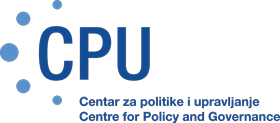Response to Crisis: Maximizing telecoms’ contribution to the economic recovery and digital transformation in BiH
The conference is organized by Centre for Policy and Governance (CPU), supported by Centre for International Private Enterprise (CIPE) US. Structured in two panels, this conference brings together decision makers, representatives of the telecom industry and international expertise.
read more



